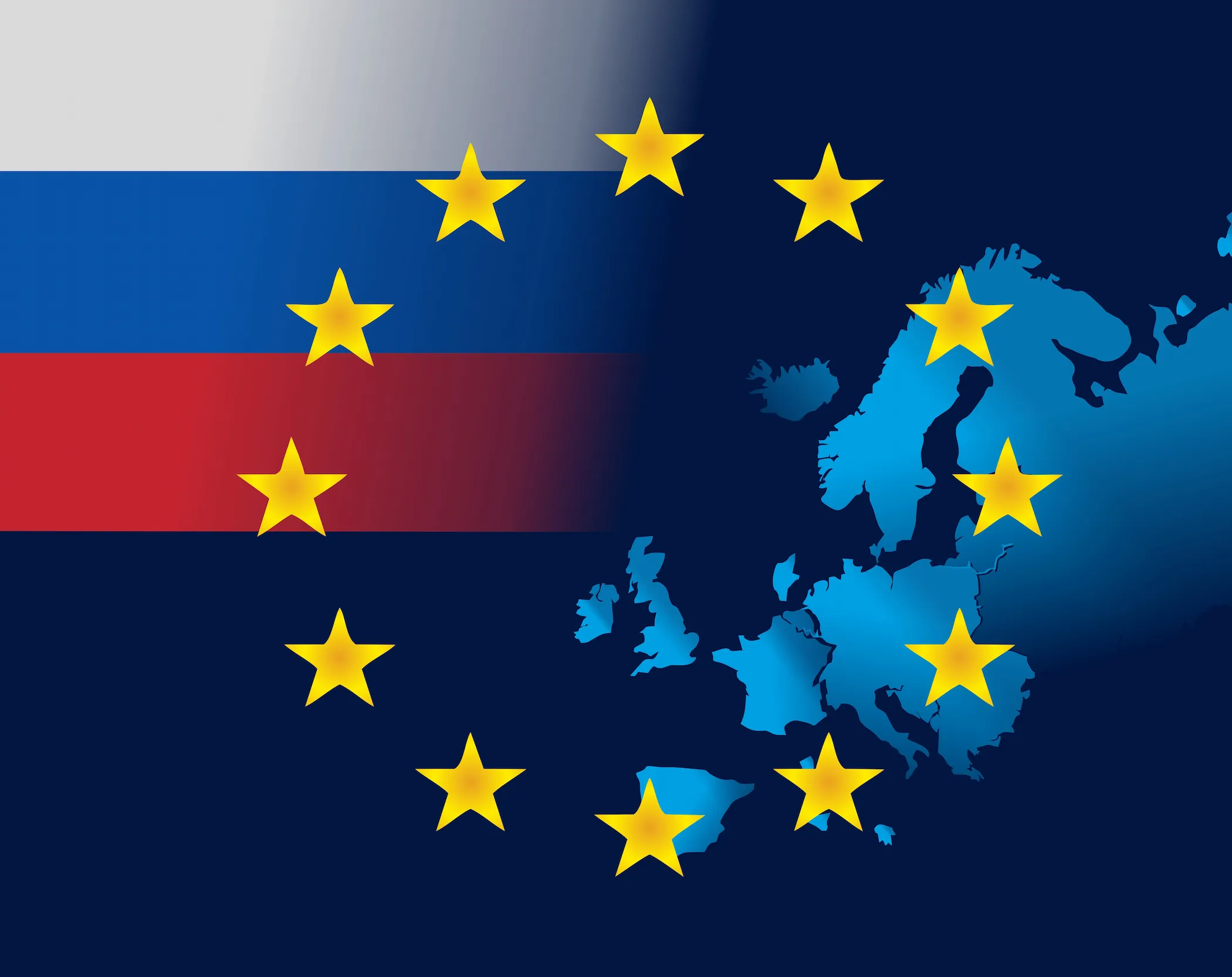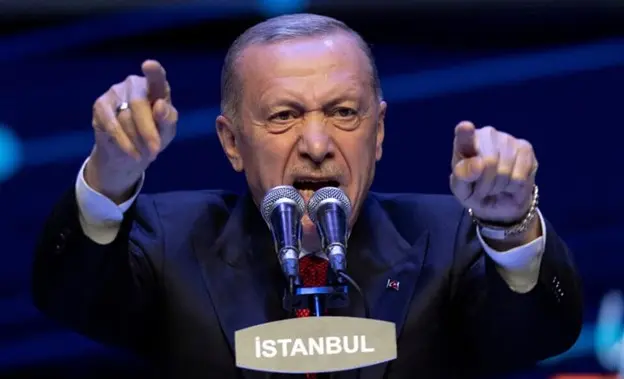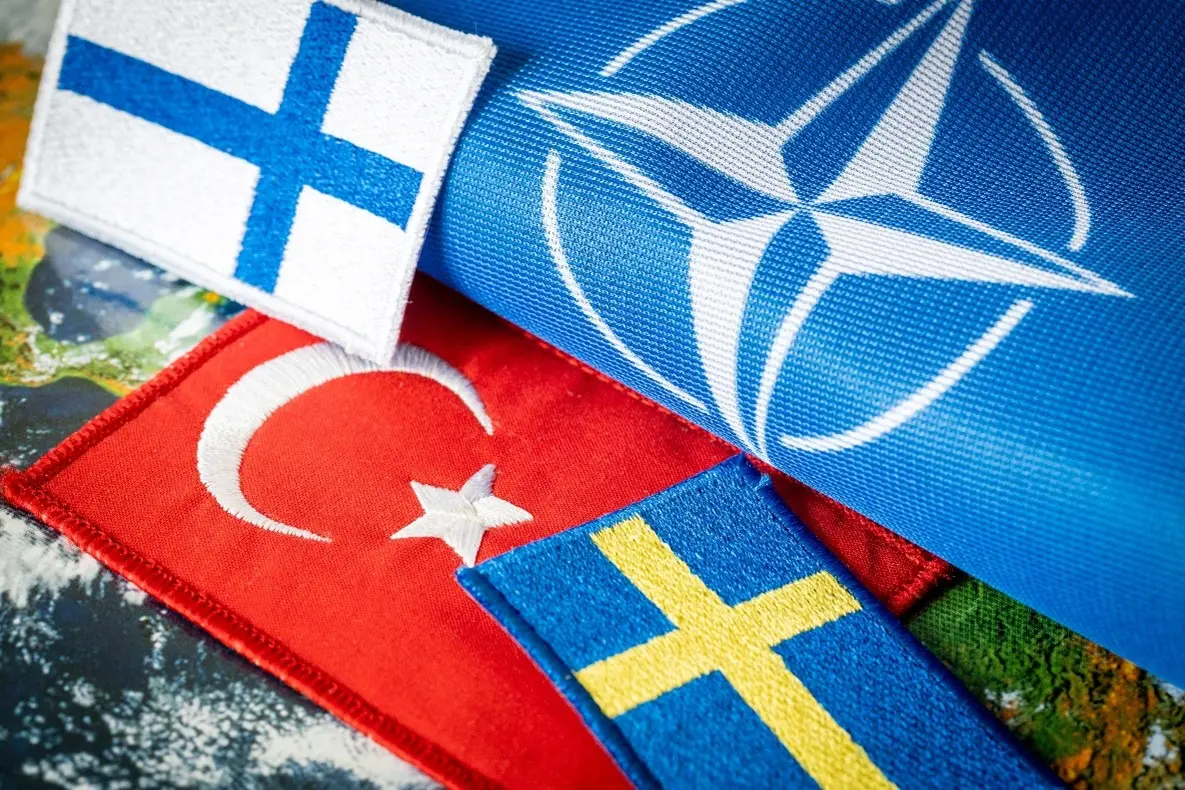The U.S. National Security Strategy (NSS) is a comprehensive document produced by the National Security Council in conjunction with the executive branch of the United States Government for Congress and then signed by the President. The NSS mainly outlines the U.S.’s major national security concerns and how the administration intends to address them using all instruments of national power. In this context, the 2024 NSS will be one of the most crucial concerns for the President-elect Donald Trump.
The challenge is not to anticipate the implication of the NSS. However, the critical aspect is which regions will be a prioritised in the 2024 NSS, with no region being particularly geopolitically or economically stable, with tensions and conflict in the Indo-Pacific, Europe, and the Middle East.
The anticipated national security priorities for Trump’s second term appear to be shaped by the policies of his first term, and his rhetoric on the campaign trail offers insight into his approach, despite his contradictions. It seems that the author of The Art of Deal, is going to be economically picky for the U.S.’s foreign policy files.
Trump shaped his worldview on a business-oriented mindset manifested in the 2017 NSS and his “America First” principle. Additionally, the Republican Party program outlines his upcoming worldview as “Restoring Peace in Europe and the Middle East”, likening it to historical approaches of “Peace by Strength” including diplomacy and moral authority by George Washington and Ronald Reagan, but Trump’s version relies on more coercive tactics like threats and economic sanctions or “Peace by Force”, reflecting his focus on prioritising economic leverage and hardline measures to secure U.S. economy by maintaining peace. Anticipatedly, the key priorities of the NSS are likely toward China, with an unexpected shift toward prioritising the Middle East over Europe and NATO, as it seems that the latter is going to be a less lucrative deal.
China First
Throughout his first term China was Trump’s priority as seen with the trade war against China where he imposed tariffs on more than $360bn of Chinese goods. During his campaign, he showed his firm belief that the U.S. economy is primarily threatened by China, stating “It is the Chinese, not the American consumers, who are responsible for the inflation repercussions in the U.S.”
This framing of China as the major economic adversary directs Trump’s focus toward confronting and adjusting China’s economic behaviour. While the Democratic Party advocates for a “tough but smart” approach toward China and criticised Trump’s trade war, Trump’s Agenda 47 for 2024 eschews a lenient enforcement approach. Instead, it pledges to restrict Chinese ownership in key sectors, including energy, technology, telecommunications, natural resources, and other strategic national sectors.
Trump perceives China’s economic threat as a greater concern than the geopolitical ambitions of other adversaries in the Indo-Pacific. For instance, he explained that when he was in office, he had “no problem” with North Korea’s Supreme Leader Kim Jong Un. Even the Chinese threat to Taiwan’s existence did not emerge as a central topic during the election cycle compared to China itself. Since the presidential debate in September, Trump referenced China 40 times across five rallies, including 27 mentions in a single hour during a town hall meeting in Michigan. When he mentioned Taiwan, he expressed consistent scepticism regarding the benefits of providing unconditional support to it. Consequently, he has shown little willingness to pay for partners’ security without a clear, tangible benefit in return.
It is noteworthy to mention that Vice President-elect, J.D. Vance, asserted that China is a U.S. priority, mentioning that “America is stretched too thin, we do not have the industrial capacity to support a war in Ukraine, a war in Israel, so America has to pick and choose, and we’ve got to focus on China.” In line with Trump’s adversarial framing of China, he has introduced legislation in Congress aimed at limiting China’s access to U.S. markets.
A notable development in the newly formed administration is the nomination of two prominent Florida Republicans to key foreign policy positions: Senator Marco Rubio as Secretary of State and Representative Michael Waltz as White House National Security Adviser. Both Rubio and Waltz are known for their hardline approach toward China, viewing it as a significant threat to U.S. economic and military power. Their inclusion in the administration signals Trump’s intention to prioritise competition with Beijing. Unlike Rubio, who addressed U.S. foreign policy without explicitly identifying specific priorities, Waltz outlined clear foreign policy priorities, arguing that Biden administration’s focus on supporting Ukraine and involvement in the Middle East has detracted from the essential mission of countering China.
Middle East Over NATO
After designating China as a top priority, Trump’s “Profit Approach” suggests that Europe and NATO are viewed as less profitable than the Middle East. During his first term in 2017, Trump declared the “No Free Rider” policy toward Europe. Consistently in his campaign, he expressed his disappointment with the European Union’s (EU) behaviour toward trade with the U.S. as they do not purchase U.S. cars and farm products while selling millions of cars to the latter. Something that Trump pledged that Europeans are going to have “to pay a big price” for. Also, he tends to disengage from U.S. commitments toward costly European security by settling the conflict in Ukraine, confirming that he can end the war through negotiations with Russian President Vladimir Putin. He asserted that NATO will pay for the U.S. as well, criticising the U.S. assistance to NATO in the war against Russia, expressing a willingness to allow Russia to act freely against any NATO member that didn’t meet its financial obligations to the defence alliance.
Regarding Trump’s nominated foreign policy team, Waltz does not support confrontation with Russia, even if the U.S. should provide Kyiv with weaponry, it is going to be conditioned with fewer usage restrictions, just to compel Russia to negotiate. Waltz also highlighted the necessity of reassessing U.S. objectives in Ukraine, questioning whether it is America’s interest to allocate the time, financial resources, and attention required for the Pacific at this juncture, and commended Trump for urging NATO allies to increase their defence spending.
As a result, NATO members are starting to increase their defence spending in response to concerns about the implications of Trump presidency. For instance, NATO members are beginning to raise their defence budgets to the previously agreed target of 2% of their national GDP to maintain NATO’s military readiness.
Contrarily to Europe and NATO, Trump’s cost-benefit analysis positions the Middle East as a strategic asset for the U.S., aligning with its economic interests. Continuously with his first term, Trump aims to engage in the region to foster a new era of peace and economic prosperity for the U.S. He plans to end the Israel-Hamas War to dedicate his efforts to contain Iran’s influence in the region. Based on “Peace by Force”, Trump intends to maintain the maximum pressure approach through economic sanctions and opposing diplomatic negotiations on the nuclear deal. He also expressed a desire for a No-Conflict Middle East, suggesting that engaging Iran in the Abraham Peace Accords could be a viable strategy.
The expected revival of peace agreements aims to foster economic prosperity in the Middle East, benefiting both the U.S. and Israel. However, the Israel-Hamas War poses a significant challenge to achieving a U.S.-Saudi-Israel agreement similar to the 2020 Abraham Accords. Secretary Blinken has noted that Saudi Arabia insists that advancing a two-state solution to resolve the Israeli-Palestinian conflict is a prerequisite for normalisation.
Furthermore, the newly selected foreign policy team reflects how much Trump is prioritising the Middle East. Firstly, his first ambassadorial nomination was Arkansas Governor Mike Huckabee, as Ambassador to Israel. Trump stated that “Mike will work tirelessly to bring Peace in the Middle East.” Huckabee serves Trump’s support of Israel by defining himself as an “unapologetic, unreformed Zionist.” With Huckabee rejecting the use of the word “settlements” in the West Bank, using “Judea and Samaria” instead, adding that they are not occupied territories. Additionally, he extremely criticised Barak Obama for engaging the U.S. in the 2015 Iranian Nuclear Deal, and praised Trump’s maximum pressure through withdrawal from the nuclear deal and imposing excessive sanctions.
Secondly, the profitable deal perspective in a peaceful Middle East is manifested in Steve Witkoff’s nomination as his initial U.S. envoy in the Middle East, rather than other regions. Witkoff a pro-Israel businessman with a background in real estate, who served as Trump’s liaison to the Jewish-American business community, and has previous experience negotiating peace agreements such as the Abraham Accords in the Middle East. On X (formerly Twitter), Witkoff reflects Trumps’ vision in the region, commending Trump’s approach to the Middle East of achieving peace and preventing wars through a strategy of “Peace by Force”, particularly by cutting off financial resources to Iran and thereby curtailing its ability to fund global terrorism.
To conclude, this is a merely glimpse of what’s next. While Trump is unpredictable and whether he would stick to his statements or not is unclear, we have some insights on what his foreign policy may look like. Based on Trump’s first term, his campaign speeches, and his foreign policy nominations, it is expected that the 2024 NSS will prioritise competition with China while shifting U.S. foreign policy focus from Europe and NATO toward the Middle East, driven by a pragmatic, profit-oriented approach. Trump’s second term is expected to build upon the principles of “America First” and “Peace by Force”, emphasising economic leverage, coercive diplomacy, and a business-minded framework for international relations.
In China, its economic threat is anticipated to dominate the administration’s agenda, with proposed measures to restrict Chinese access to strategic U.S. sectors and sustain pressure on Beijing through legislative and economic tools. This focus reflects a broader worldview prioritising tangible economic gain over geopolitical entanglements. Simultaneously, the administration’s scepticism toward NATO and European commitments underscores a transactional view to alliances, favouring cost-effective and self-reliant partnerships. In contrast, the Middle East emerges as a strategic priority, shaped by economic interests and a commitment to fostering stability through sanctions on Iran, realignment of alliances, and peace-building initiatives, such as the Abraham Accords.
References
Wolf, Zachary. “Biden on China Vs. Trump on China.” CNN, (2024). Accessed November 14, 2024.https://edition.cnn.com/2023/11/14/politics/biden-trump-china-what-matters/index.html
De Guzman, Chad, and Koh Ewe. “Where Donald Trump and Kamala Harris Stand on China.” NPR, (2024). Accessed November 13, 2024. https://time.com/7020042/trump-harris-china-explainer-trade-tariffs-taiwan-war-human-rights/
Dettmer, Jamie. “Trump’s Effect on the Middle East.” Politico, (2024). Accessed November 11, 2024. https://www.politico.eu/article/donald-trump-effect-middle-east-cease-fire-israel-hezbollah/
Gray, Andrew, and Sabine Siebold. “What Did Trump Say about NATO Funding and what Is Article 5?” NPR, (2024). Accessed November 13, 2024. https://www.reuters.com/world/what-did-trump-say-about-nato-funding-what-is-article-5-2024-02-12/
Frantzman, Seth. “Meet Donald Trump’s New Middle East Team, with New Faces and Old.” Politico, (2024). Accessed November 13, 2024. https://www.jpost.com/middle-east/article-828950
Katulis, Brian, and Athena Masthoff. “COMPARING HARRIS AND TRUMP ON MIDDLE EAST POLIC.” The Middle East Institue, (2024). Accessed September 27, 2024. https://www.mei.edu/sites/default/files/Harris-Trump%20policy%20comparison%20-%20Sept%2027.pdf
Ordoñez, Franco. “Trump Could — And Wants to — Shake up U.S. Foreign Policy even More in a Second Term.” NPR, (2024). Accessed November 11, 2024. https://www.npr.org/2024/06/11/nx-s1-4996441/trump-foreign-policy-israel-europe-nato-ukraine-russia-china-trade
Plowright, Adam. “Trump’s ‘America First’ Foreign Policy Likely to Be Helmed by Marco Rubio and Michael Waltz, Two China Hawks from Florida.” fortune, (2024). Accessed November 14, 2024. https://fortune.com/2024/11/12/trump-america-first-foreign-policy-marco-rubio-michael-waltz-china-hawks-florida/
Rob, Schmitz. “How Europe Is Responding to Trump’s Comments about NATO and Russia.” NPR, (2024). Accessed November 12, 2024. https://www.npr.org/2024/02/12/1230987872/how-europe-is-responding-to-trumps-comments-about-nato-and-russia
Staunton, Denis. “What Does Trump’s Win Mean for the EU, Ukraine, China and Middle East?” The Iresh Times, (2024). Accessed November 7, 2024. https://www.irishtimes.com/world/us/2024/11/07/what-does-trumps-win-mean-for-the-eu-ukraine-china-and-middle-east/
Stewart, Phil, Steve Holland, and Idrees Ali. “Trump Selects Mike Waltz as National Security Adviser, Sources Say.” Reuters, (2024). Accessed November 12, 2024. https://www.reuters.com/world/us/trump-selects-mike-waltz-national-security-adviser-wsj-reports-2024-11-11/
Suter, Tara. “Trump Appoints Real Estate Exec Steven Witkoff as Middle East Envoy.” The Hills, (2024). Accessed November 7, 2024. https://thehill.com/homenews/administration/4987131-trump-steve-witkoff-middle-east-envoy/
Tharoor, Ishaan. “What Trump’s Emerging Foreign Policy Team Tells Us about His Agenda.” Washington Post, (2024). Accessed November 13, 2024. https://www.washingtonpost.com/world/2024/11/13/trump-cabinet-rubio-hegseth-foreign-policy/






















Comments